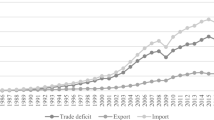Abstract
Peace Through Commerce (PTC) is expanding its influence on the formulation of business strategies for responding to challenges found in conflict and post-conflict zones. A review of practical guidance available on successful PTC business practices shows it is more general than particular and short on detailed recommendations. In addition, such recommendations say little about how globalization is transforming the forms and processes of global governance and their implications for PTC strategies. An assessment of the changing landscape of global governance suggests that implementation of successful PTC strategies will face even greater challenges. However, the emergence of a ‘global governance broker’ model as an innovative, multi-sector, voluntary approach to organizing global governance suggests a new method for businesses to implement their PTC policies and programs. The ‘global governance broker’ approach is described and its implications for business as an alternative approach to formulating their PTC strategies and implementing their PTC policies and programs are considered.
Similar content being viewed by others
Abbreviations
- AACSB:
-
Association for the Advancement of Collegiate Schools of Business
- CSR:
-
Corporate social responsibility
- GGG:
-
Good global governance
- GNNTD:
-
Global Network for Neglected Tropical Diseases
- PTC:
-
Peace Through Commerce
- NGO:
-
Non-governmental organization
- NTD:
-
Neglec- ted tropical diseases
- USIP:
-
United States Institute of Peace
References
Abramov, I. (2007) “Responsible Business: Weaving the Fabric of a Stable Marketplace”. American Business Law Journal 44(2): 223-236.
Anderson, M. (2008) “False Promises and Premises? The Challenge of Peace Building for Corporations”. In Williams O. (eds) Peace through Commerce: Responsible Corporate Compact, Citizenship and the Ideals of the United Nations Global University of Notre Dame Press, Notre Dame, IN pp. 119-132.
Ballentine, K and V. Haufler: 2005, Enabling Economies of Peace: Public Policy for Conflict Sensitive Business. Commissioned Report by the UN Global Compact. www.unglobalcompact.org.
Banfield, J., C. Gunduz and N. Killick: 2006, Local Business, Local Peace: The Peacebuilding Potential of the Domestic Private Sector. Commissioned Report by International Alert. http://www.international-alert.org/publications/pub.php?p=252.
Bearce, D., Omori, S.(2005) “How Do Commercial Institutions Promote Peace?”. Journal of Peace Research 42(6), 659-678.
Bennett, J.: 2002, “Multinational Corporations, Social Responsibility and Conflict”, Journal of International Affairs 55(2), 393.
Cavanagh, G., Hazen, M.A., Simmons, B., and Berdish, D. (2008). “Ford Motor Company, Human Rights, and Environmental Integrity”. In: Williams O. (ed.) Peace Through Commerce: Responsible Corporate Citizenship and the Ideals of the United Nations Global Compact. University of Notre Dame Press, Notre Dame, IN pp. 307-328.
de Senarclens, P., and Kazancigil, A.: 2007, Regulating Globalization: Critical Approaches to Global Governance, (United Nations University Press, Tokyo, Japan).
Fort, T.: 2007, Business, Integrity, and Peace: Beyond Geopolitical and Disciplinary Boundaries, (Cambridge University Press, New York, NY).
Fort, T. and Schipani, C.: 2004, The Role of Business in Fostering Peaceful Societies, (Cambridge University Press, New York, NY).
Fukuyama, F.: 2004, State-Building: Governance and World Order in the 21st Century (Cornell University Press, New York, NY)
Goldsmith, S., and Eggers, W.: 2004, Governing by Network: The New Shape of the Public Sector, (The Brookings Institution Press, Washington, D.C.).
Guáqueta, A. (2008) “Occidental Petroleum, Cerrejón, and NGO Partnerships in Colombia: Lessons Learned”. In Williams O. (ed.) Peace Through Commerce: Responsible Corporate Citizenship and the Ideals of the United Nations Global Compact. University of Notre Dame Press, Notre Dame, IN pp. 381-402.
Held, D.: 2005, Globalization, International Law and Human Rights. Public Lecture Presented to Human Rights Center, University of Connecticut, 20 Sept. 2005.
Hettiarachchi, R., L. Holdaway and C. Gündüz: 2009. Sustaining Business and Peace: A Resource Pack on Corporate Responsibility for Small and Medium Enterprises. Commissioned Report by International Alert. http://www.international-alert.org/publications/pub.php?p=404.
Mansfield, E., and Pevehouse, J. (2003) “Institutions, Interdependence, and International Conflict”. In: Schneider G., Barbieri K., Gleditsch N. (eds.) Globalization and Armed Conflict. Rowman & Littlefield, Lanham, MD, pp. 233-250.
Murphy, C : (2000) “Global Governance: Poorly Done and Poorly Understood”. International Affairs 76(4):789-803.
Nelson, J.: 2000, The Business of Peace: Business as a Partner in Conflict Resolution, (Prince of Wales Business Leaders Forum).
O’Neal, J., Russet, B., and Berbaum, M. (2003) “Causes of Peace: Democracy, Interdependence, and International Organizations, 1885-1992”. International Studies Quarterly 47(3):371-393.
Rosenau, J. (2002) “Governance in a New Global Order”, In Held D. and McGrew A. (eds.), Governing Globalization: Power, Authority, and Global Governance, Blackwell Publishing, Malden, ME, pp. 70-87.
Salamon, Lester M. 2002, The Tools of Government: A Guide to the New Governance, (Oxford University Press, Oxford).
Scholte, J. (2005) “Civil Society and Democratically Accountable Global Governance.” In Held D. and Koenig-Archibugi M. (eds.), Global Governance and Public Accountability, Blackwell Publishing, Malden, ME, pp. 87-109.
The United Nations Global Compact: 2007, Inspirational Guide to Implementing the UN Global Compact. http://www.unglobalcompact.org/docs/news_events/8.1/Inspirational_Guide.pdf.
Trevino, L., & Brown, M.: 2004, “Managing to be ethical: Debunking five business ethics myths.” Academy of Management Executive 18, 69-91.
U.S. Department of Commerce: 2004. Business Ethics: A Manual for Managing Responsible Business Enterprise in Emerging Market (Library of Congress, Washington, D.C.).
Weaver, G., & Trevino, L.: 1999, “Compliance and Values Oriented Ethics Programs: Influences on Employees’ Attitudes and Behavior”, Business Ethics Quarterly 9, 315-335.
Williams, O. (ed.): 2008, Peace through Commerce: Responsible Corporate Citizenship and the Ideals of the United Nations Global Compact, (University of Notre Dame Press, Notre Dame, IN).
Woods, N.: 2000, “Global Governance and the Role of Institutions”, in D. Held and A. McGrew (eds.), Governing Globalization: Power, Authority, and Global Governance, (Blackwell, Malden, ME), pp. 25-46.
Acknowledgment
The author would like to acknowledge the assistance of Rebecca Mimnall, George Washington University graduate student, in research for this project and assistance with the manuscript.
Author information
Authors and Affiliations
Corresponding author
Rights and permissions
About this article
Cite this article
Forrer, J. Locating Peace Through Commerce in Good Global Governance. J Bus Ethics 89 (Suppl 4), 449–460 (2009). https://doi.org/10.1007/s10551-010-0396-2
Published:
Issue Date:
DOI: https://doi.org/10.1007/s10551-010-0396-2




